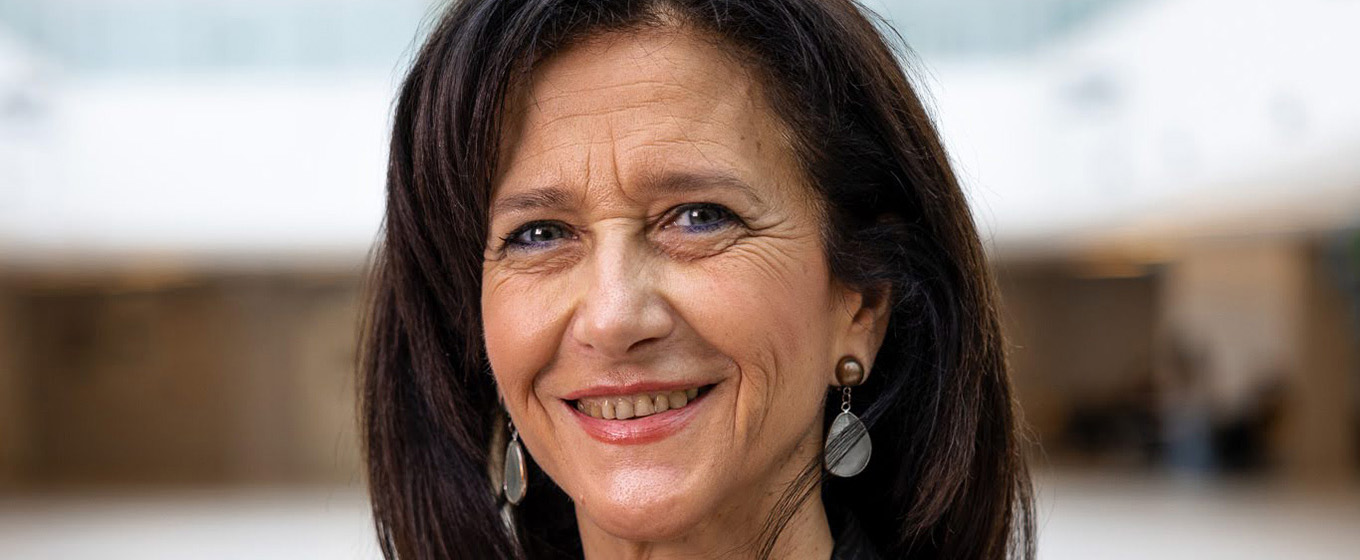Community and equal opportunities

by Beniamina Cassetta
Universities are perhaps one of the places where the generational clash between youths and adults is most acutely felt: students who populate the classrooms each year are, from the perspective of those who work or teach there, increasingly difficult to understand. Therefore, creating a strong community through the right tools, based on respect and the dignity of every human being, is essential.
It empowers us to transcend differences and encourages us to always seek common ground for dialogue based on equality. We discussed this and much more with Raffaella Iafrate, Professor of Social Psychology and member of the University Centre for Studies and Research on the Family. She is the first Pro-Rector
delegate for Equal Opportunities, a role recently created following the publication of the first Gender Equality Plan at Università Cattolica.
What are the bodies dedicated to equal opportunities at Università Cattolica and how do they work together?
The Gender Equality Plan (GEP) is a policy document required by Europe for all institutions, including universities, aimed at reducing gender asymmetries across various fronts.
Thanks to the GEP, two working and governance groups have been developed: the Gender Equality Team and the GEP Unit. The former is made up of various representatives from the entire university community, including administrative staff, academic staff, and students. Its purpose is to monitor the implementation of the GEP.
The GEP Unit, on the other hand, has a more operational function and is predominantly made up of administrative figures.
There is also the Committee for Equal Opportunities/Committee for Equal Opportunities for Women and Men, which stimulates the promotion of cultural events, oversees projects, and supervises efforts in this area.
Moreover, for the first time within the university strategic plan, a dedicated working table for equal opportunities has been
established, which I am responsible for alongside the Human Resources Director, Marzia Benelli. Thanks to the meeting and collaboration of these bodies, which began with the first meeting in May 2023, a task force on the subject is being established, and I must say that this synergy is one of the things I am most pleased about.
We agreed on the joint goal of working for equal opportunities in a perspective that is not limited, for example, only to
the issue of gender asymmetry, but that recognises an idea of equal opportunities as the equal dignity of all people in their differences, including those of ethnicity, ability, or socioeconomic status.
Which project do you think has contributed most to creating a community spirit within Università Cattolica?
One project that exemplifies the connection of all these bodies is the recently launched Focus Team on Equal Opportunities at the University.
It consists of creating working groups that allow participants to express their opinions and give suggestions for organisational change respecting the theme of equal opportunities and inclusion to improve well-being in the workplace.
It is based on a very communal vision of the university: it is composed not only of students, professors, or administrative staff but of the union of all these forces.
The theme of equal opportunities lends itself very well to creating connections between all these realities.
The teams meet twice a year, the first to analyse the existing situation and the second to identify projects to present at the strategic plan committee.
After a year, there will be a rotation, and we will give space to other people. We expect that the participants, after this experience, will become the first ambassadors of equal opportunities within the University.
One project that holds great importance to me, owing to my background in family psychology, is the Family Enrichment Project. This project offers parenting support meetings to all the parents working in the University, as we believe that the roles of a parent and a worker are fundamental dimensions of one's personal identity.
How do you see the idea of equal opportunities from the perspective of the younger generations?
As adults, it is our responsibility to be mindful of the cultural changes that our young people go through.
In this respect, I feel fortunate to have a job that allows me to frequently interact with university students, especially on sensitive topics such as family psychology.
In this historical moment, many institutions, especially the family, face scrutiny regarding their traditional beliefs.
By listening to the younger generation, it's evident that the culture on certain issues is evolving. The new generations are increasingly aware of equal opportunities, inclusion, and sustainability, and are more sensitive to these issues. This is evident from the emphasis placed on refining language to communicate these concepts effectively.
We recently published guidelines on the Università Cattolica website for using inclusive language. For instance, my generation did not consider feminizing some terms that were traditionally masculine as problematic, but it is a crucial issue for the younger generation.
Similarly, issues like racism, ageism, or ableism are important concerns that need to be addressed in language.
The younger generation bears the responsibility of guiding adults to abandon outdated societal norms and ways of thinking. We must always listen to them carefully and take their opinions seriously.
However, I've noticed a trend among younger generations, reminiscent of what was already observed with Millennials. There seems to be a gap between their words and actions – a disconnect between their values and intentions and their ability to translate them into actions. It seems that they are heavily influenced by the virtual world, where words like "love" and "friendship" are easily expressed with heart emoticons, but real human connections become less meaningful and long-lasting.
While I am not criticising these generations for only using words, I believe that we should help them turn their values into tangible actions in everyday life.

